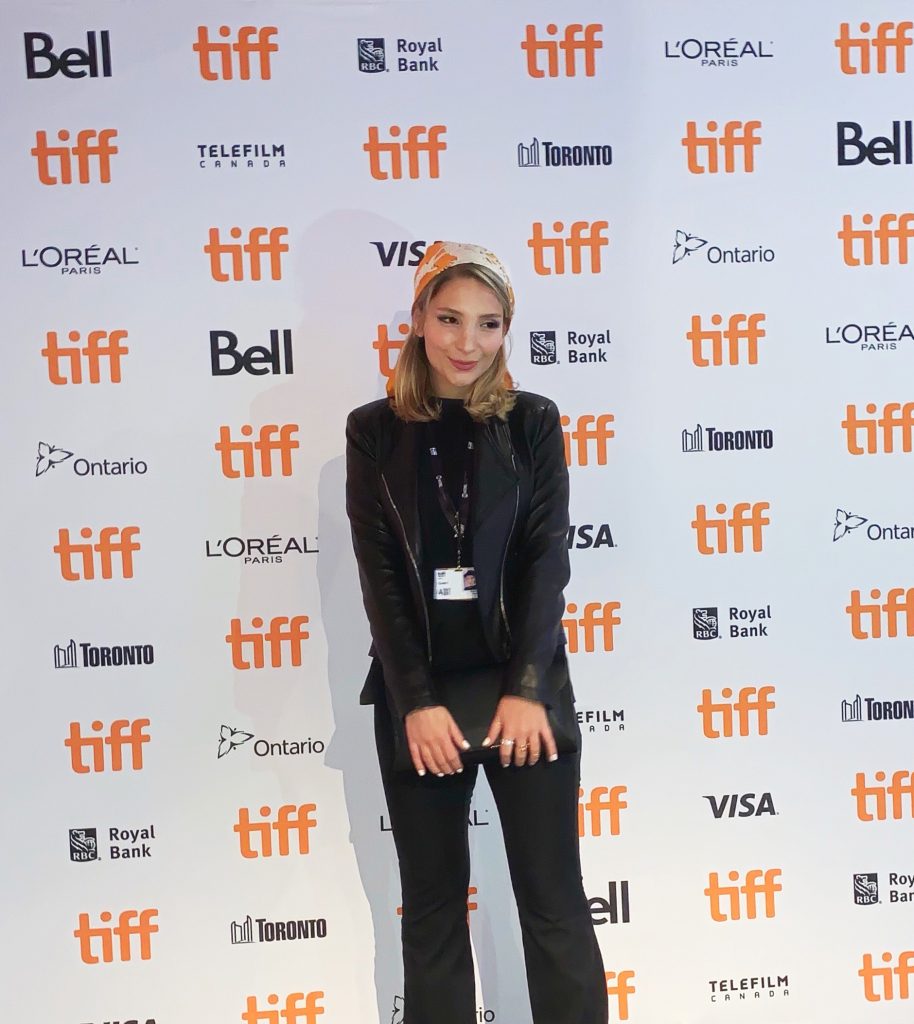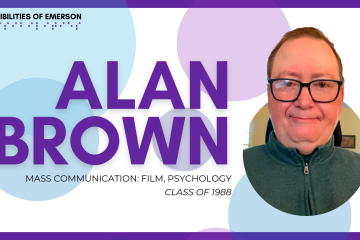Sonia Hadad ’17 is a writer, director, and producer whose work illustrates a level of storytelling and innovative expression found amongst Emerson College graduates. Currently based in Tehran, Sonia has had the honor of having her film, Exam, screened at the Toronto International Film Festival’s Short Cuts programme.
Having accomplished so much in such little time, Sonia embodies the expressive and technical spirit of a true womxn of Emerson.

Tell us a little about your creative life before Emerson:
Sonia: “I was born and raised in Tehran, Iran, in a culture made of mystic tales and poems. I am acutely interested in Middle Eastern history and the social/political atmosphere. My fascination with the intersection of history, culture, and politics continues to inform my visual and conceptual personal language. I am shaped by a society in turmoil, which makes me more engaged with daily challenges. I work to create an atmosphere of everyday realism so that the spectator can connect the artwork to his or her own experiences.
I studied physics-mathematics for the first two years of high school, and then I changed my major to Graphic Design. I started writing short stories from when I was 12 years old, and my focus always was on writing. I started with writing short stories for local and literary magazines, and that’s why I chose Dramatic Arts – Theatre (Playwriting) major at Art and Architecture University in Tehran to do for my BA. In 2014 I moved to the US to do my masters in Film and Media Arts at Emerson College and fulfill my academic and career goals.”
What experience at Emerson has been the most impactful for your career and craft as a filmmaker?:
“Emerson was a new path and an opportunity to teach me the technical points and conceptual phases of the medium of cinema. I developed my artistic potentials and improved my film, making knowledge with the help of my professors and mentors at Emerson. The school allowed me to work and test my capabilities in film projects, use professional filmmaking equipment, making mistakes, and improve my practical skills. I have never stopped my connection with my Emerson professors even after graduation, and their supports have led me through my career and work, and it was the main point in my current success.”

What advice would you give a VMA graduate student about seeking out and making the most of internships?:
“My own experience for the first year after graduation was working non-stop for different companies and film projects and in various production, positions to learn and get experienced. This effort made me confident enough to start my film projects. I was aware that my goal as an intern is just to having a goal and mastering my skills. I was honing my ability to connect with people in a project, learning how to communicate with cast and crew, and the last and most crucial point was building and expanding my network in the industry.”
We all bring ourselves to work. And we all have the opportunity to reflect on areas to grow as professional womxn. What are some of the internal biases you’ve had to recognize and address so that they don’t impact on your work?:
“In its most apparent manifestation, my unconscious bias was the essence of the gender equality debate in the cinema industry. How many womxn get disregarded as filmmakers, directors, and in most of the key positions?
I use to had this belief that there will be no chance for me to work as a womxn filmmaker, to grow and show my talents, specifically in the patriarchal societies we are living in. But when I started working, I realized that nothing is more important than my objectives and the way I choose to accomplish them. I understood that as far as you know what you want and get skilled in your field, gender inequality beliefs can not prevent you from what you do!”
What are some common issues you’ve noticed that womxn have to face in their careers and what are the issues that have impacted you based on your individual background?:
“My main issue in our filmmaking career was (and still is) that most of the stories are written and told by men, for men. When I sit in the director’s chair, I can illustrate stories through the eyes of a strong female individual; the perspective that has been mostly quiet and maybe suppressed, especially in the society like the one I’m coming from. Cinema grew mature a lot during the last three decades in Iran, and you know about growing pains. The cultural climate at the time steered me to live and work as an activist and artist; my motivations only grew stronger. And now, after a few short movies and life experiences amongst different cultures, I’m more than ever motivated to bring my vision to the table.”



